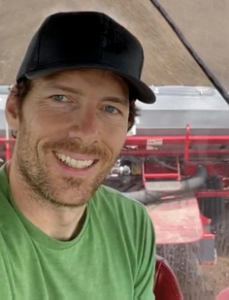Review of: “Transforming Psychological Worldviews to Confront Climate Change”
 “Transforming Psychological Worldviews to Confront Climate Change: A Clearer Vision, a Different Path,” by F. Stephan Mayer, is a comprehensive analysis of the foundations of psychology that shape our worldview.
“Transforming Psychological Worldviews to Confront Climate Change: A Clearer Vision, a Different Path,” by F. Stephan Mayer, is a comprehensive analysis of the foundations of psychology that shape our worldview.
Mayer presents empirical data on Earth’s changing climate, as well as primary academic publications, to lay a scientific case for a land ethic worldview movement. The many ways to embrace transition to a land ethic worldview are exemplified in the book. Mayer uses examples from various points on the spectrum of personal identification with a land ethic worldview. No matter how a person identifies with this new worldview, through cooperation, interconnectedness and intention, they can catalyze change small or big.
If we are to ask citizens to transition to an alternative worldview, constructs of social psychology, along with the empirical data on the science of climate change, need to be clearly articulated. Mayer uses the story of Aldo Leopold’s transition from a young man who blindly exploited nature to a person with a conservation-minded ethic as an example of positive evolution toward change. Referencing the barriers to interpreting climate change as an imminent threat, Mayer eloquently provides a deep dive into the roots that form a culture of “mistrust,” “a general atmosphere of uncertainty,“ “selective exposure,“ “denial” and finally, “psychological distancing.”
Upon realizing the thoroughness and density of content to Mayer’s case, I needed to set the book down and take a step back to think about the best perspective from which to read this book. I chose to wear my “farmer hat“ and wondered, in the context of the potential creation of voluntary carbon markets in agriculture, will Mayer’s book shed light on the current lack of clarity? To this question, unfortunately, Mayer provides no answers.
The U.S. Congress passed the Growing Climate Solutions Act in June 2021, which creates a framework for developing voluntary carbon markets in agriculture. Mayer’s book, published in 2019, is well-timed to shed light on the history and socio-psychological characteristics humans must contend with if we are to take the action needed to avert a planetary climate crisis. Mayer takes a hard look at examples of our collective tendency to act in haste when presented with a range of choices.
By page 100, about halfway through the book, the evidence supporting an evolutionary predisposition to seek shortsighted outcomes begins to feel intellectually heavy. This is a book that would be good if I were a researcher looking for a source of literature on the social psychology of decision-making as it relates to changing one’s worldview about climate change.
The next question I asked myself as I read was as follows: Is there hope the pursuit of selfish interests we all wrestle with can be consciously widened to be inclusive of those who are from another country, continent, race, ethnicity or demographic? For a time, I thought Mayer left this question unanswered. However, he surprised me in the second half of the book when he discussed how to move from an outlook of separateness to interconnectedness. Mayer points out the purpose of diving deeply into the science of psychology – “it enables us to measure aspects of our world and critique our worldviews.” In this capacity, he writes, “science can help us see more clearly, chart a different course of action and remap our relationship to the natural world”
Mayer desires for us to see connections between ourselves and nature, as well as ourselves and others. Suggestions on how one might begin the process towards a new lifestyle are well represented in the final chapter. Mayer believes that, through a series of small, intentional actions by many people, we can set a path where human systems and natural systems work in harmony with one another to create a better promise for our future.
I give this book a thumbs-up for its breadth on a topic that changes daily. If there is one constant our species must recognize if we are to change our behaviors, it’s that we must understand both the psychology and history of our human nature to make better decisions in the future. This will ensure our best chance of getting things right in our next and biggest challenge.
 Levi Lyle and his family farm near Keota, Iowa, raising organic corn and soybeans, as well as aronia berries, tart cherries and various other fruits. Levi’s Indigenous Fruit Enterprises (LIFE) seeks to facilitate the profitability and sustainability of small farms. Previously an organic inspector, Levi now consults farmers transitioning to certified organic production. He is also a podcaster and author of two books, available at www.levilyle.com. Levi will be one of six farmers performing during the storytelling session at PFI’s 2022 annual conference.
Levi Lyle and his family farm near Keota, Iowa, raising organic corn and soybeans, as well as aronia berries, tart cherries and various other fruits. Levi’s Indigenous Fruit Enterprises (LIFE) seeks to facilitate the profitability and sustainability of small farms. Previously an organic inspector, Levi now consults farmers transitioning to certified organic production. He is also a podcaster and author of two books, available at www.levilyle.com. Levi will be one of six farmers performing during the storytelling session at PFI’s 2022 annual conference.
